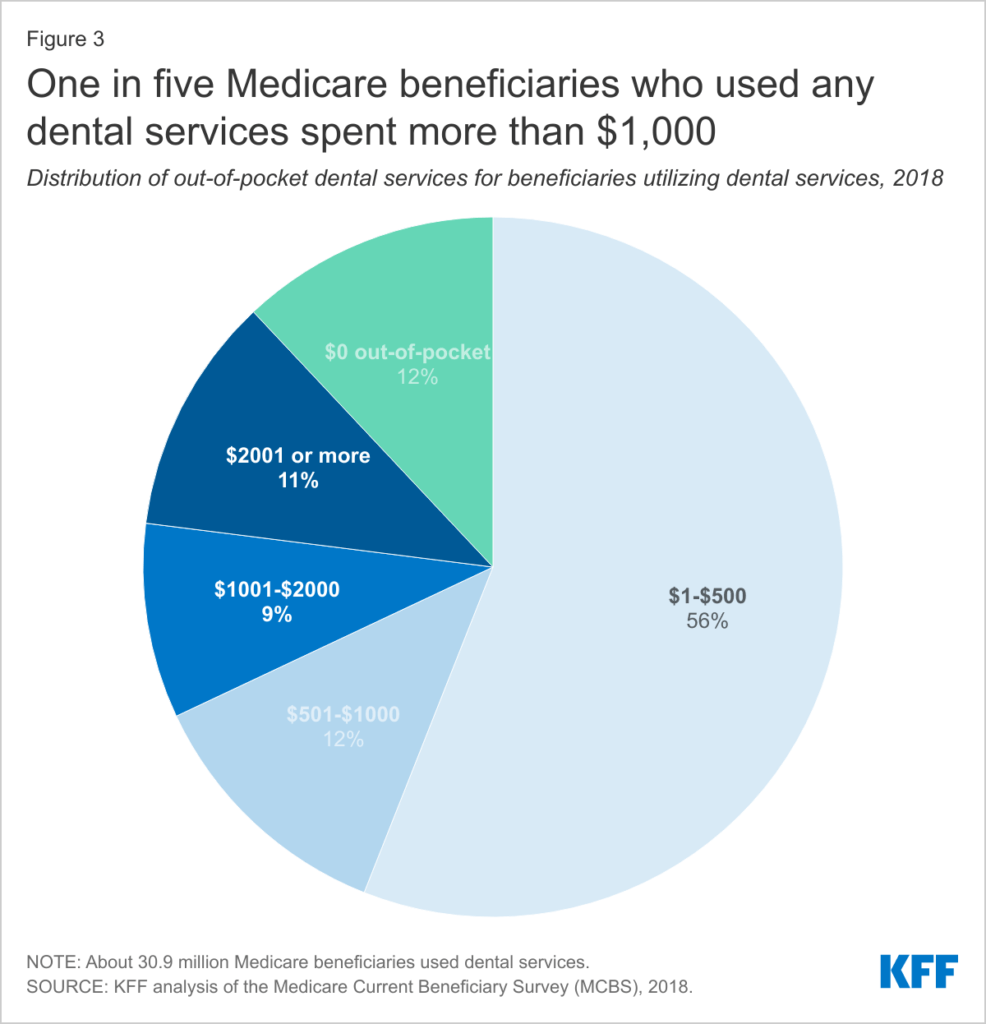Dental health is important to your long term health yet Medicare provides very limited coverage of dental services in that it does not cover routine dental care or most dental procedures such as cleanings, fillings, tooth extractions or dentures. In addition, Medicare does not pay for dental plates or other dental devices. In general, you pay for 100% of dental services. However, Medicare dental options exist providing access to affordable dental!
Section 1862 (a)(12) of the Social Security Act states that Medicare will not cover dental care,
where such expenses are for services in connection with the care, treatment, filling, removal, or replacement of teeth or structures directly supporting teeth, except that payment may be made under part A in the case of inpatient hospital services in connection with the provision of such dental services if the individual, because of his underlying medical condition and clinical status or because of the severity of the dental procedure, requires hospitalization in connection with the provision of such services.
https://www.cms.gov/Medicare/Coverage/MedicareDentalCoverage
The dental exclusion was included as part of the initial Medicare program. The principle being that coverage is not determined by the value or the necessity of the dental care but by the type of service provided and the anatomical structure on which the procedure is performed.
Most beneficiaries who received dental services in 2018 (88%) paid out of pocket for their care. Across all beneficiaries, average out-of-pocket spending on dental care was $454 in 2018, although this includes a large number of beneficiaries who did not have any dental care that year. Among the roughly half of all Medicare beneficiaries who used any dental services, average out-of-pocket spending on dental care was $874 in 2018. One in five beneficiaries who used dental services spent more than $1,000 out-of-pocket on dental care, including one in ten that spent more than $2,000. The following chart demonstrates the breakdown

Here are some examples of dental services that Medicare may cover:
- Dental services that are an integral part of a covered procedure (e.g., reconstruction of the jaw following accidental injury).
- Extractions done in preparation for radiation treatment for neoplastic diseases involving the jaw.
- Oral examinations, but not treatment, preceding kidney transplantation or heart valve replacement, under certain circumstances. This examination would be covered under Part A if performed by a dentist on the hospital’s staff or under Part B if performed by a physician as the purpose of the examination is not for the care of the teeth or structures directly supporting the teeth. Rather, the examination is for the identification, prior to a complex surgical procedure, of existing medical problems where the increased possibility of infection would not only reduce the chances for successful surgery but would also expose the patient to additional risks in undergoing such surgery.
- Hospital stays if needed for emergency or complicated dental procedures, even when the dental care itself is not covered. In these cases you should call your Part A contractor for more information.
- Inpatient hospital services in connection with the provision of such dental services if the individual, because of his underlying medical condition and clinical status or because of the severity of the dental procedure, requires hospitalization in connection with the provision of such services.
- Surgical procedures for the reconstruction of a ridge as the result of and at the same time as a tumor removal (for other than dental purposes).
- Payment for the wiring of teeth when it is done in connection with the reduction of a jaw fracture.
- Dental splints are covered if used in conjunction with the treatment of a covered medical condition (i.e., dislocated upper and/or lower joints).
- Medicare makes payment for a covered dental procedure no matter where the service is performed. The hospitalization or non-hospitalization of a patient has no direct bearing on the overage or exclusion of a given dental procedure.
Individuals on original Medicare will need to obtain their own Dental insurance options. However, most Medicare Advantage Plans typically cover preventive and comprehensive dental services to some degree, subject to your location. While these Medicare Advantage plans may provide dental, vision, hearing, and fitness benefits, some of these may have additional premiums for such benefits.
In 2021, 94% of Medicare Advantage enrollees in individual plans, have access to some dental coverage. The majority (86%) of these Medicare Advantage enrollees have access to a plan with more extensive coverage, while 14% had access to preventive coverage only. Preventive dental coverage under Medicare Advantage plans generally includes oral exams, cleanings, dental x-rays, and sometimes fluoride treatments. More extensive benefits cover a range of services, including restorative services (e.g., fillings), endodontics (e.g., root canals), periodontics (e.g., scaling and root planing), prosthodontics (e.g., dentures, dental implants), and oral surgery.
While these Medicare Advantage plans offer dental benefits, the benefit typically (78%) has an annual dollar cap on dental coverage. Some plans cap the amount they will pay for the extensive dental benefits with no cap on preventive services, while the majority of enrollees are in plans that cap cost sharing for both preventive and extensive services. In 2021, the average annual limit on dental coverage among plans that offer more extensive benefits is about $1,300. However more than half (59%) of enrollees in these plans have dental benefits that are capped at $1,000 or less.
Even with all these limitations, Medicare Dental Options exist for everyone. For a confidential report, contact us today.
